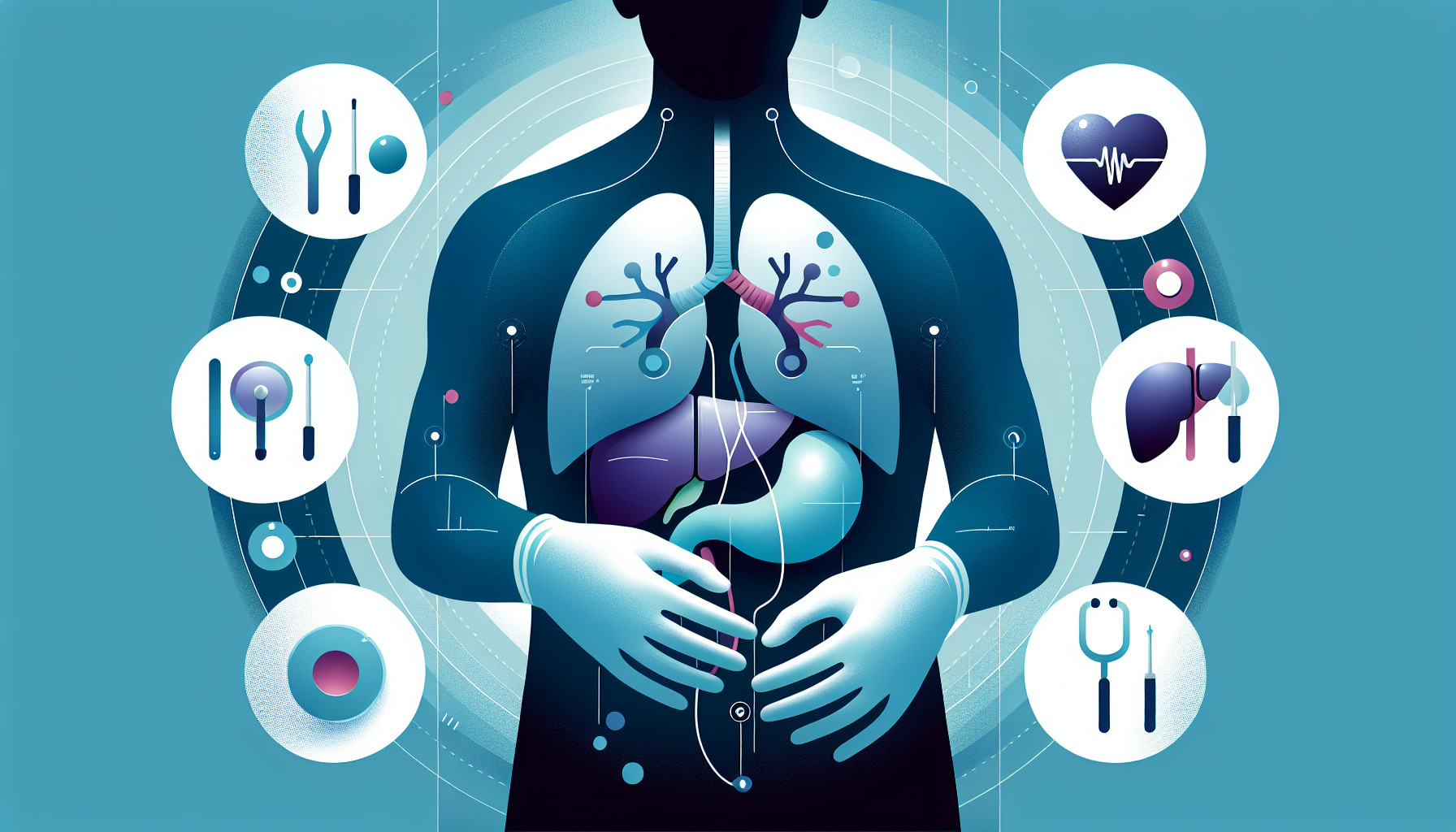Our Summary
This research paper looks into the role of a specific protein, IL-18, and its receptor (IL-18R) in organ transplantation. IL-18 and IL-18R help regulate our body’s immune responses, which is crucial during transplants. IL-18 can stimulate certain cells to produce other proteins and regulate the activity of specific immune cells, promoting inflammation. However, the way IL-18 works in relation to organ transplantation is not fully understood.
The paper summarizes recent findings about how IL-18 functions in transplant situations. The protein and its receptor seem to play a part in different types of transplants, such as vascular transplantation and kidney, liver, and heart transplants. Interestingly, IL-18 also seems to influence the effectiveness of a common anti-rejection drug used in transplants.
The researchers suggest that blocking IL-18 might help lessen the production of certain damaging proteins and improve the function of the transplanted organ. It could also help regulate cell death in heart muscle cells and prevent the differentiation of harmful cells. Changes in IL-18 levels might be used as an indicator of how well the transplanted organ is doing.
In summary, understanding more about IL-18 and its receptor could give us new insights into the biology of organ transplantation and potentially lead to more effective treatments in the clinic.
FAQs
- What is the role of IL-18 and its receptor in organ transplantation?
- How might blocking IL-18 improve the function of a transplanted organ?
- Could changes in IL-18 levels be used as an indicator of how well the transplanted organ is functioning?
Doctor’s Tip
One helpful tip a doctor might tell a patient about organ transplant is to follow their post-transplant medication regimen closely. It is important to take all prescribed medications as directed to prevent rejection of the transplanted organ and to keep the body healthy. Missing doses or stopping medications without consulting a doctor can have serious consequences. Regular follow-up appointments with healthcare providers are also crucial to monitor the progress of the transplant and address any concerns.
Suitable For
Patients who are typically recommended for organ transplant include those with end-stage organ failure or severe organ dysfunction that cannot be effectively treated by other means. This can include patients with conditions such as:
Chronic kidney disease: Patients with end-stage renal disease who require dialysis or have severely impaired kidney function may be recommended for a kidney transplant.
Liver disease: Patients with advanced liver cirrhosis or liver failure may be candidates for a liver transplant.
Heart failure: Patients with severe heart failure that does not respond to medication or other treatments may be recommended for a heart transplant.
Lung disease: Patients with severe lung conditions such as pulmonary fibrosis or chronic obstructive pulmonary disease (COPD) may be candidates for a lung transplant.
Pancreatic disease: Patients with severe pancreatitis or pancreatic cancer may require a pancreas transplant.
Intestinal failure: Patients with severe intestinal disorders or failure may be candidates for an intestinal transplant.
In addition to the specific organ failure, patients must also meet certain medical criteria and be physically and mentally able to undergo the transplant surgery and follow the necessary post-transplant care. The decision to recommend an organ transplant is made by a multidisciplinary team of healthcare providers, including transplant surgeons, transplant coordinators, and other specialists.
Timeline
Before transplant: The patient undergoes extensive medical evaluations to determine their eligibility for a transplant. They are placed on a waiting list and may need to undergo various tests and procedures to prepare for surgery.
Day of transplant: The patient is admitted to the hospital, undergoes surgery to remove the diseased organ, and receives the new organ from a donor. The surgery can last several hours, and the patient is closely monitored in the intensive care unit immediately after the procedure.
After transplant: The patient will stay in the hospital for a period of time to recover and be monitored for any signs of rejection or complications. They will need to take immunosuppressant medications for the rest of their life to prevent rejection of the new organ. Regular follow-up appointments and tests will be needed to monitor the function of the transplanted organ and adjust medications as needed.
Long-term: The patient will need to make lifestyle changes, such as maintaining a healthy diet, staying physically active, and avoiding exposure to infections. They will also need to be vigilant about monitoring for signs of rejection and managing any side effects of their medications. With proper care and adherence to medical guidelines, many patients can lead long and fulfilling lives after receiving an organ transplant.
What to Ask Your Doctor
Some questions a patient should ask their doctor about organ transplant in relation to IL-18 and IL-18R could include:
- How does IL-18 and its receptor, IL-18R, impact the immune response during organ transplantation?
- Are there any specific risks or complications associated with high levels of IL-18 or IL-18R in the context of my organ transplant?
- Are there any medications or treatments that target IL-18 or IL-18R that could potentially benefit my transplant outcome?
- How will my healthcare team monitor my levels of IL-18 and IL-18R post-transplant to ensure the success of the procedure?
- Are there any ongoing research studies or clinical trials investigating the role of IL-18 and IL-18R in organ transplantation that I should be aware of?
- How can I support my immune system and overall health to potentially reduce inflammation and improve the function of my transplanted organ in relation to IL-18 and IL-18R?
- What are the potential long-term effects of IL-18 and IL-18R on my transplanted organ and overall health, and how can these be managed?
Reference
Authors: Liu C, Chen J, Liu B, Yuan S, Shou D, Wen L, Wu X, Gong W. Journal: Eur Cytokine Netw. 2018 Jun 1;29(2):48-51. doi: 10.1684/ecn.2018.0410. PMID: 30078783
